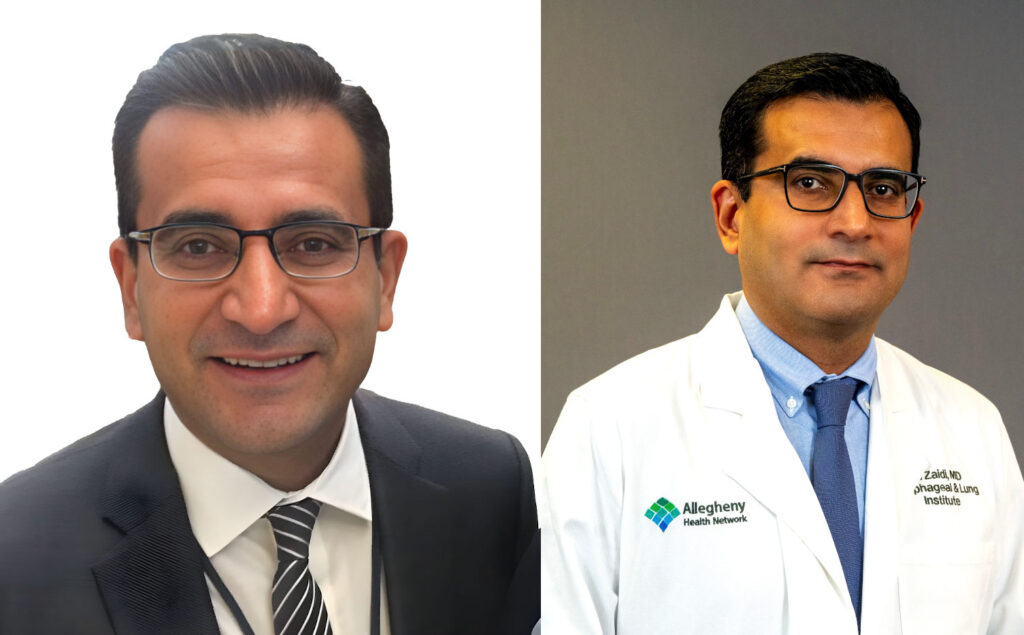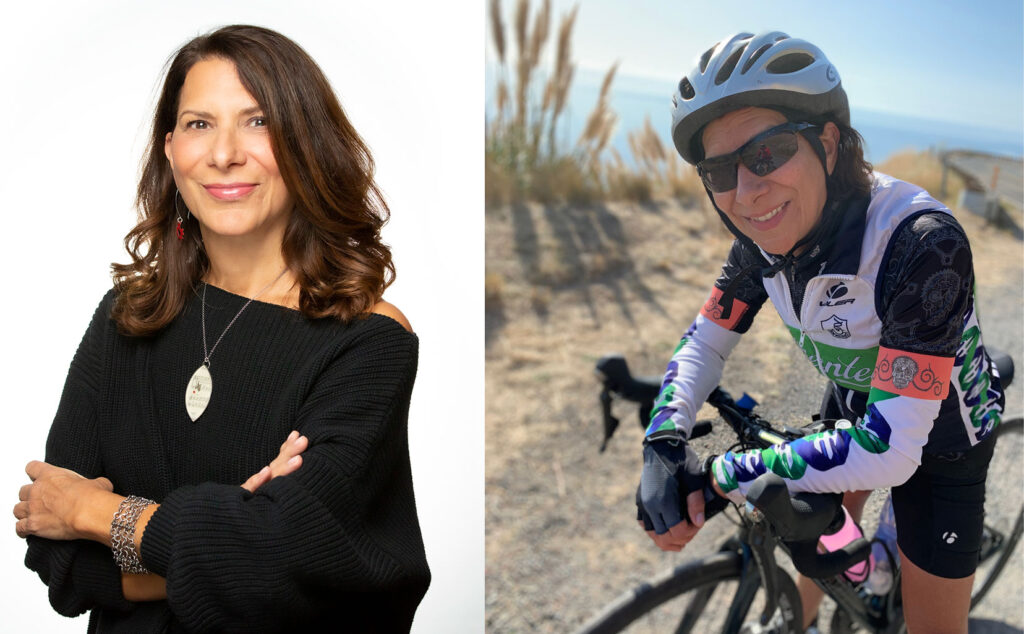The Art of Living: Weaving Hope, Joy, and Resilience Through Cancer
November 25, 2024
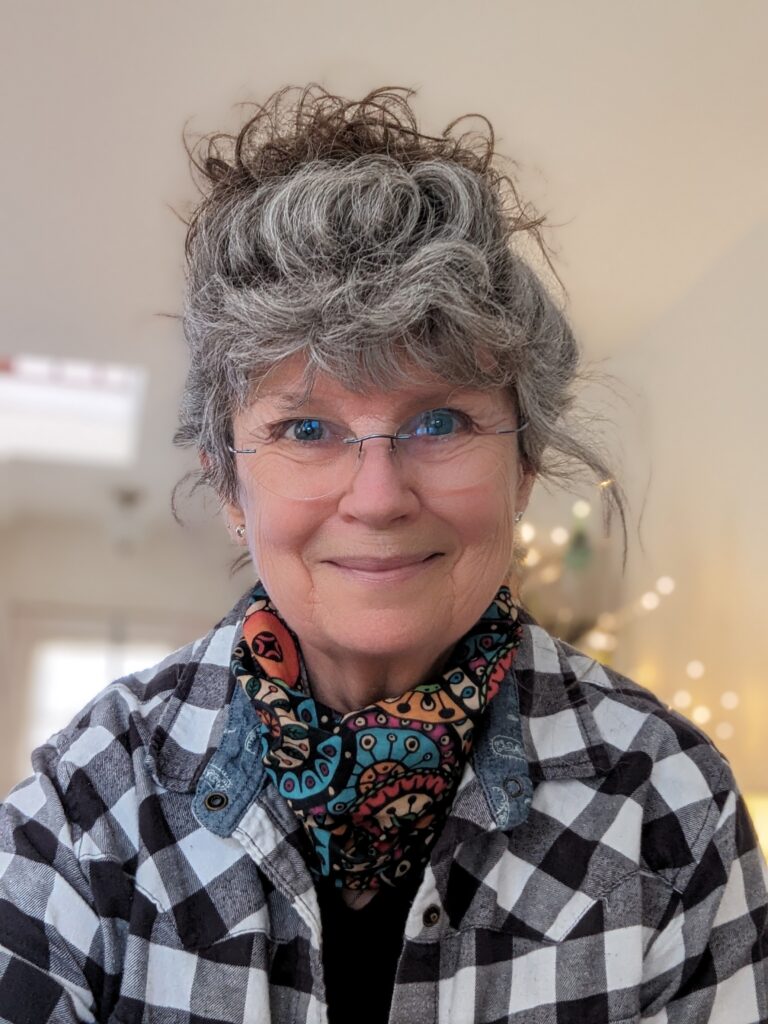
Donnita Butler believes there is profound wisdom to be discovered in personal stories – both her own and those others share. If you are fortunate enough to meet Donnita, you’ll quickly learn that she is a gifted storyteller – an audacious kind of artist who paints a rich portrait of her life’s journey with sharp wit and a generous laugh.
Donnita’s stories showcase how taking an active role in her wellbeing – with strength, resilience, and determination – has allowed her to hope and to love without restraint. Despite deeply painful challenges, Donnita is swift to recognize the great joys of her life: family, community, and nature.
She credits prioritizing self-care and advocacy with helping her navigate the turmoil she’s endured. What lessons does she want us to learn?
Be open to metaphors.
Imagine that you are taking a much-needed camping trip in Shenandoah National Park to savor October’s autumn foliage. You’ve spent a few quiet nights in your camper van. The fresh air clears your head, and burnt orange and red leaves falling from Chestnut trees and Yellow Poplars have lulled you into deep contentment. You feel good. You feel at ease.
When you wake up on your third morning under still-dark skies, you drive to the overlook and catch the sun as it rises. Just as you are basking in the warmth of the sun’s glow – and as suddenly as a flash of lightning – a massive white-tailed buck slams violently into the side of your van. The impact is traumatic.
You know the damage could be catastrophic. Your camper looks destroyed (the driver’s side was), and your body feels battered and sore.
What do you do?
If you’re Donnita, you tap into radical acceptance and gratitude. You find compassion for the buck and for your body. You take a few deep breaths. You practice coping strategies that have gotten you through the most difficult times.
You get calm, again.
And you realize the entire experience is a metaphor for what a lung cancer diagnosis feels like.
Advocate for yourself, ask for screening.
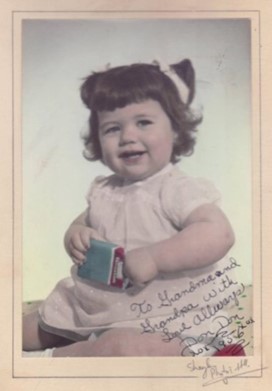
Life has a way of getting busy. In 2023, between the upheaval of COVID and the delight of welcoming two precious grandbabies into her family, Donnita realized that she had pushed a few years’ worth of routine annual lung cancer screening to the proverbial back burner. Five years had passed since she received her first low-dose CT screening. Back in 2018, Donnita had to fight for that first screening.
Even with a handful of risk factors, including decades of smoking, a family history of lung cancer, and asbestos and radon exposure, her primary care provider at the time declared “insurance wouldn’t cover it.” But Donnita knew enough to know better.
Empowered and intelligent, Donnita understood the importance of being both informed and proactive in her health. “Every year,” she explains, “I would carefully read the new benefits brochure from my insurance company. In 2018, new well-care additions were created by the Affordable Care Act, and I immediately noticed that low-dose CT screening was listed as a covered benefit. I knew I needed to get screened.”
Despite resistance from the medical system, she took charge and got the screening she needed. To her relief, she showed no evidence of cancer.
Five years later, in late August 2023, she finally got a follow-up scan.
And that is when the metaphorical white-tailed buck rammed violently into her reality. The scan picked up a small nodule, just 1.8cm, hiding in Donnita’s lung. “My grandfather had died really quickly from lung cancer; and so, to me, lung cancer was death. I thought I was going to die. When I went to my pulmonologist, I said, ‘I’m done, right?,’ and he said, ‘Oh no! We’ve got this early. There have been so many advances – you’ll be fine.”
And so, Donnita chose to stay calm.
By early October, she was scheduled for surgery – an innovative robotic procedure focused precisely on her upper left lobe – and when the pathology results came back, Donnita was diagnosed with stage 1A2 adenocarcinoma.
Use your tools.
Donnita is a firm believer in using all the tools in her toolbox.
An avid researcher, one of the first things she did after her diagnosis was to seek community and connection. “Community,” she says, “has played a vital role in providing me with hope, encouragement, and a sense of belonging.” Connecting with other patients and those on the frontlines of lung cancer awareness allowed Donnita to learn about treatment advances and discern the best questions to ask. “Now, every time I go to a doctor, I have my sheet of paper with all my questions triple-spaced so I can write the answers in there,” she explains. “And my very first question to my surgeon after my surgery was, ‘will I get biomarker testing?’” She explains, “I studied authoritative sources, and I had learned so much. I knew the importance of biomarker testing.”
Some of those sources include the White Ribbon Project; the American Cancer Society; Lungevity; and Dr. Benjamin P. Levy at the Johns Hopkins Sidney Kimmel Cancer Center (who, ultimately, aided Donnita in obtaining biomarker testing).
Live completely.
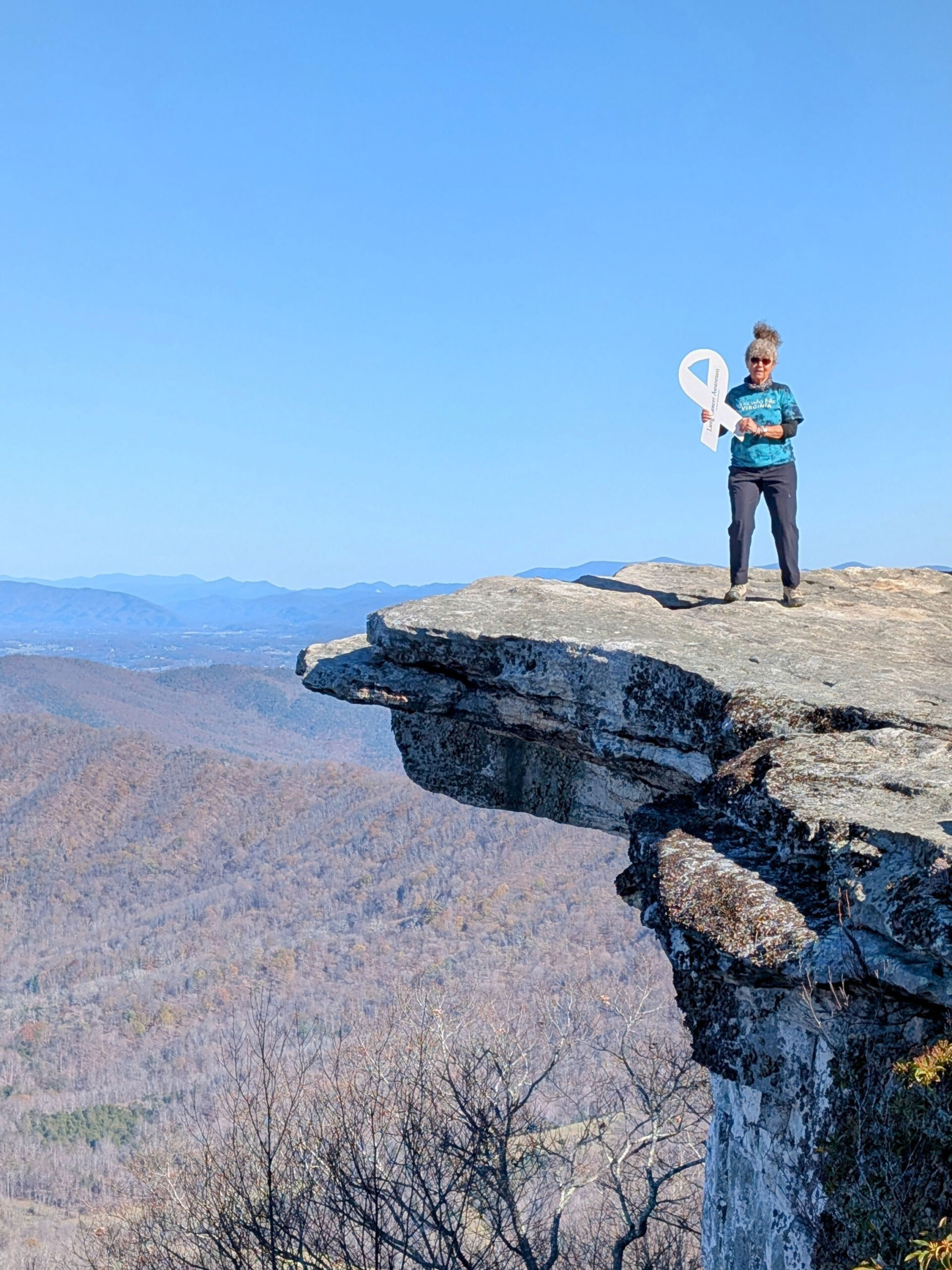
Donnita’s story shows us that living is not just about surviving the impact of unexpected traumas – it’s about how we choose to respond to them.
With her trademark humor and generous spirit, Donnita has turned her journey into a masterclass in resilience. She shows us what it means to be both vulnerable and empowered.
Donnita is the first to acknowledge her smoking history and other risk factors, meeting any potential stigma with the same direct approach she brings to everything else. “This is part of my story,” she might say with that characteristic blend of wisdom and levity, “but it’s not the whole story.” Through her connections with organizations like the White Ribbon Project and her candid conversations with fellow survivors, she’s helping to shift the narrative around lung cancer. After all, as she learned firsthand, shame has no place in healing.
Donnita continues to embrace life completely – savoring the joy of those precious grandbabies, advocating for early screening, and sharing her story with others. Because sometimes the most powerful medicine isn’t found in the treatments we receive, but in the communities we build and the compassion we share along the way.


